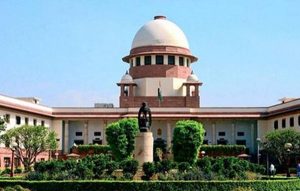 The Supreme Court in the case of M/s GODWAY FUNICRAFTS vs. THE STATE OF ANDHRA PRADESH & ORS. Vide CIVIL APPEAL NO(S). OF 2025 (ARISING OUT OF SLP NO(S).16833-16834/2023) dated 15.07.2025, held that Contentions raised in pleadings but not argued in the main hearing can be validly raised in review, especially where such contentions go to the root of jurisdiction. Imposition of 100% penalty under Section 74 CGST Act requires proof of fraud or wilful suppression, and the burden is on the department.
The Supreme Court in the case of M/s GODWAY FUNICRAFTS vs. THE STATE OF ANDHRA PRADESH & ORS. Vide CIVIL APPEAL NO(S). OF 2025 (ARISING OUT OF SLP NO(S).16833-16834/2023) dated 15.07.2025, held that Contentions raised in pleadings but not argued in the main hearing can be validly raised in review, especially where such contentions go to the root of jurisdiction. Imposition of 100% penalty under Section 74 CGST Act requires proof of fraud or wilful suppression, and the burden is on the department.
Facts of the Case: In this case, the appellant-assessee had filed a writ petition before the Andhra Pradesh High Court challenging the imposition of 100% penalty under Section 74 of the CGST Act, 2017, and its corresponding provision under the State GST law. The High Court dismissed the writ petition on 11.11.2020.
Subsequently, the assessee filed a review petition on the ground that the issue of absence of fraud or wilful misstatement, which is a jurisdictional pre-condition for invoking Section 74 and imposing 100% penalty, was not properly considered. The assessee contended that although this point was raised in the memorandum of writ petition, it may not have been adequately argued during oral submissions.
The High Court dismissed the review petition on 06.05.2022, holding that such a contention was not raised during the writ hearing and therefore could not be introduced in review proceedings. Aggrieved, the assessee approached the Supreme Court.
Issue: Whether the High Court was justified in dismissing the review application on the ground that the contention regarding 100% penalty without proof of fraud or wilful misstatement was not argued during the original writ hearing, even though it was pleaded in the petition.
Held that:
The Supreme Court partially allowed the appeal and held that the assessee was entitled to raise the plea in the review application, particularly because it was already raised in the memorandum of writ petition, though not specifically argued earlier.
The High Court erred in rejecting the review solely on the ground that the plea was not argued during the original hearing. The Review petition is restored on the file of the High Court.
The High Court is directed to consider the assessee’s grievance regarding the imposition of 100% penalty under Section 74 without establishing fraud or wilful suppression and imposition of interest on such penalty.
To read the complete judgment 2025 Taxo.online 1734


